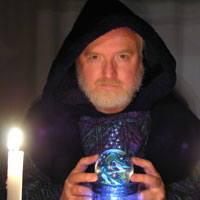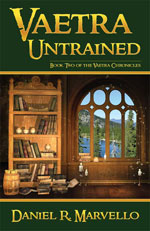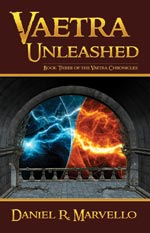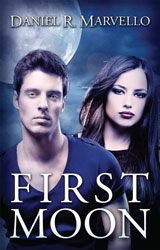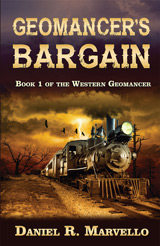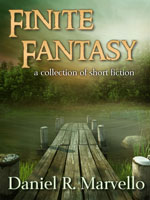I’m pleased to be hosting a guest post by fellow fantasy author Will English this week. We exchanged posts as part of the Summer 2012 Magic Appreciation Tour. Will has been an enthusiastic supporter of the Magic Appreciation Tour, for which I’m grateful.
In his guest post, Will explores ways that video games can help fantasy authors improve their world building skills. I found it illuminating. I hope you will too.
A World within a World
by Will English
I think that video games, more than any other medium, are one of the best tools that a fantasy and/or sci-fi author can use to learn about world building. Why do I say this? Well a book or movie can take you to Middle-Earth and tell you what’s going on, but a video game can put you IN Middle-Earth so can experience what’s going on for yourself. “Experience” is the key word here, because as you experience and learn about the game (like its history, in-world culture and what you can and cannot do etc), then you can bring those lessons over to your writing. Now obviously I don’t think any writer should use video games solely to learn about world building, but I do think that there are some important things that an aspiring world builder can learn from them, particularly the RPG genre which is almost wholly dependent on world building. Here are two things I think they should be looking out for:
1. Consistency and logic.
A lot of young writers make the mistake of “anything goes in fantasy,” which just simply isn’t true. There are always rules, even though there is magic and monsters. And video games, I think, can illustrate this point very well. For example: In Final Fantasy 8 for the PlayStation, everyone can use a form of artificial magic, but there are also beings called Sorceress and not just anyone can become one of them. Because Sorceress have the potential to use magic naturally, but that potential doesn’t awaken until another Sorceress dies and passes their powers on to someone with the potential. But even then the woman who is receiving a dying Sorceress’ powers must be physically close to them at the time of death or it won’t work. What I just described, albeit in abbreviated form, is how magic works in Final Fantasy 8; everyone can use artificial magic, but only a select few can use it naturally. It’s both logical and consistent with the rest of the game. And if the game ever deviates from these parameters, then it breaks the players suspension of disbelief and stops making sense within the context of the world and the story. So it is when you are creating your own system of magic or whatever.
2. Cultural immersion.
Part of World building is developing a culture that will dictate how the characters act. This can include things like terms of phrase, religion, what government the characters are under or any number of things that are too numerous to name. What makes video games good for showing this and for teaching this is as well, is that it can actually put you into that culture. Like in the first person shooter game Bioshock. Bioshock is about a nameless man who, after his plane crashes, finds himself in Rapture; an underwater city founded by a wealthy business man named Andrew Ryan. Ryan founded Rapture so that business, the arts and science could flourish and thrive without the constraints of morality, government, and religion to hold it back. If this sounds familiar to some, well that because Ryan’s philosophy is a thinly disguised version of Objectivism, and Rapture’s culture is wholly based around it. The game starts after this Objectivist utopia has collapsed and is slowly decaying into dust. I don’t have time to explain everything, but as you play the game you start to see what kind of culture that Rapture must have lived under before it went to hell. Selfishness and greed was a virtue above all others and that comes out in various audio dairies that you find that explain the game’s back story. For example: at one point you find the audio dairy of a botanist who found a way to grow a living forest in Rapture, and how Ryan and the rich have turned it into a pleasure retreat, something that she was promised wouldn’t happen. As she says in the dairy “I started to argue with the man but then I remember who signed my check. The only thing worse than a hypocrite is an unemployed one.”
What I’m explaining here is the culture of Rapture and how it affects the inhabitants. The botanist in the aforementioned example could have argued and fought, but that would have gone against the social norms of city because she’s still making money. And to lose money…well there ya go. Applying this lesson to world building is simple; culture affects all aspects of people’s life: What is this world like? Why is it like that? What is the religious, social and political situation of the world? How does it affect the characters/people’s world view and thinking processes? These questions are the foundation of any world, fictional or otherwise.
*****
Will English is the author of the fantasy short story collection ‘Walking with Summer Dreams.’ He currently lives in Georgia USA.
Visit him at: http://thesummersleeper.blogspot.com/
